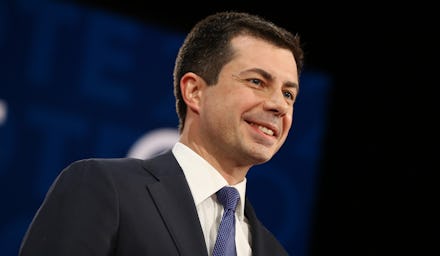Try as they might, populist candidates can't get the money out of politics

Money in politics isn’t just for Republicans. Of course, money is the grease that facilitates any campaign; no candidate should pay their staff in coffee. But a couple of recent stories drive home the point that even as candidates on both sides decry corporate fat cats and paint themselves as populist champions, the party machines that will operate their campaigns are still playing by the old rules.
On Monday, The Guardian published a report exploring the ways that corporate money is funding next year’s political conventions. Both parties have put together high-budget sponsorship packages, giving companies the chance to buy in with large sums of money in order to be featured at the conventions and get face time with influential movers and shakers. Per the report, Republicans are offering corporations the chance to to meet directly with the team behind President Trump’s re-election campaign. “For corporate donors, the sponsorship opportunities can be incredibly valuable,” reads the language from a pitch deck obtained by The Guardian.
The organizers of this summer's Democratic National Convention in Milwaukee, Wisconsin, are no less venal. Brochures obtained by The Guardian describe “prime advertising opportunities throughout Fiserv Form, providing exceptional exposure to convention attendees,” with advertisers at the top “gold” level of sponsorship shelling out as much as $1 million. And that's before you take into account the fact that Democrats have not one, but two billionaire candidates buying their way into the race.
Obviously, this doesn’t jive with the platforms of top-tier Democrats like Sens. Elizabeth Warren and Bernie Sanders, who’ve sworn off of big money in their campaigns.
According to a story in the Milwaukee Journal Sentinel from October, Sanders has promised to eliminate corporate cash at the convention. “When Bernie is the nominee, everything will fundamentally change for corporate elites,” campaign surrogate Josh Orton told the paper. “A Bernie Sanders convention will be a people-powered convention.”
Sanders’s promises aside, the Democratic race is likely to turn out to be just as dependent on corporate cash as the Republican side. That’s the takeaway from a story over the weekend in Axios about South Bend Mayor Pete Buttigieg's campaign. The website revealed that a major fundraiser for Buttigieg, H.K. Park, emailed a direct offer of money for access to a donor. "If you want to get on the campaign's radar now before he is flooded with donations after winning Iowa and New Hampshire, you can use the link below for donations," Park wrote in an email obtained by Axios. Buttigieg is known to be friendly to big money — after all, it was only last week that Warren attacked him for a high-dollar fundraiser he held in a so-called “wine cave.”
Still, such a direct offer goes above and beyond the ethical guidelines that are supposed to keep donations at least nominally separate from whom a candidate spends their time with. Even the donor, who remains anonymous, was disturbed by the offer. "It's very telling and concerning that one of the campaign's major bundlers would talk like that," they said in an interview with Axios.
According to a spokesperson for the campaign interviewed by Axios, "The campaign did not see or authorize the language in this email. But it is ridiculous to interpret it as anything more than asking potential supporters who may be interested in Pete to join our campaign before caucusing and voting begins. … The only promise any donor will ever get from Pete is that he will use their donations to defeat Donald Trump."
That may be true. And candidates including both Trump and the progressive wing of the Democrats have taken a harder line than many politicians before them when it comes to corporate greed. Still, actions speak louder than words, and it’s hard to feel like the lines between the Democrat and Republican establishments are especially far apart, at least when it comes to money in politics. The political machines exist, and machines will always try to gather the fuel they need to operate. In politics, money drives machines.
That’s the way it’s always been. And if the 2020 race is any indication, it’s not changing any time soon.